It began life as a simple Firefox browser extension, but Mozilla VPN is now a full standalone product which secures all your internet traffic on Windows, Mac, Android, iOS and Linux.
The network is smaller than some rivals at 400+ servers across 40+ locations and 30+ countries. To put that in perspective, ExpressVPN has 3,000 servers, NordVPN 5,500, and CyberGhost has 7,800.
- Want to try Mozilla VPN? Check out the website here
Mozilla VPN is powered by Mullvad's excellent network. Some companies keep quiet about the fact that they're reselling someone else's service, but Mozilla is very open. Click the 'see our full list of servers' link on the Mozilla VPN website, for instance, and it takes you to the server list on Mullvad's site.
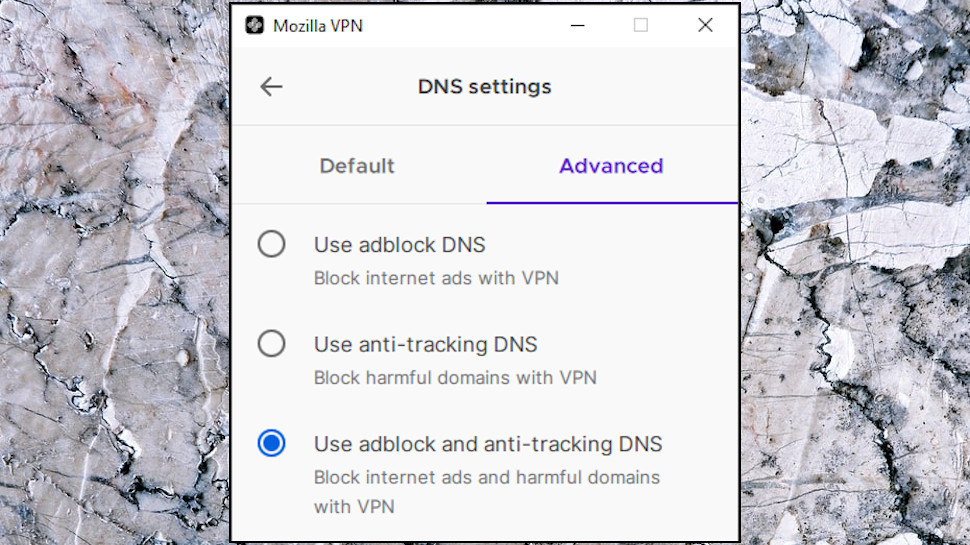
Features
Mozilla VPN's feature list has grown considerably since launch, and the service now beats many specialist VPNs in some areas.
The network is P2P-friendly, for instance. Support for the speedy WireGuard protocol optimizes performance, and there's a kill switch to protect you if the VPN drops.
Multi-Hop VPN enables connecting to the VPN from one location (Phoenix, say, but you can choose anything from the location list) and exiting from another (maybe London), making it even more difficult for others to track your activities. Mozilla implemented this a while ago on desktop apps, but it's recently arrived on Android and iOS, too.
Split tunneling support (confusingly called App Permissions here) allows you to decide which apps are protected by the VPN, and which use your regular internet connection.
Other highlights include IPv6 support, and the ability to choose an ad or tracker-blocking DNS server, or to use your preferred DNS.
There are still weaknesses. Mozilla VPN only supports the WireGuard protocol, for instance. There's no support for setting up the service on routers. And you still can't set up the apps to automatically connect when you access public Wi-Fi, either.
There's no live chat support, but Mozilla does have a decent number of support articles. You can also send questions to the support team from the website if you're in serious trouble.
We spotted one potential annoyance. Although Mozilla VPN says it works with up to five devices, that means specific, registered devices. If you use the service on two mobiles, two laptops and a tablet, for instance, you can't use it on a new device until you've removed support for one of the others.
A handful of companies do something similar (KeepSolid VPN Unlimited is one), but most providers limit you by the number of simultaneous connections only. You can still only connect a set number of devices at one time, but the VPN doesn't care which ones they are, and there's none of the hassle of registering or removing a specific device.
- How does Mozilla VPN shape up with the best Firefox VPN extensions
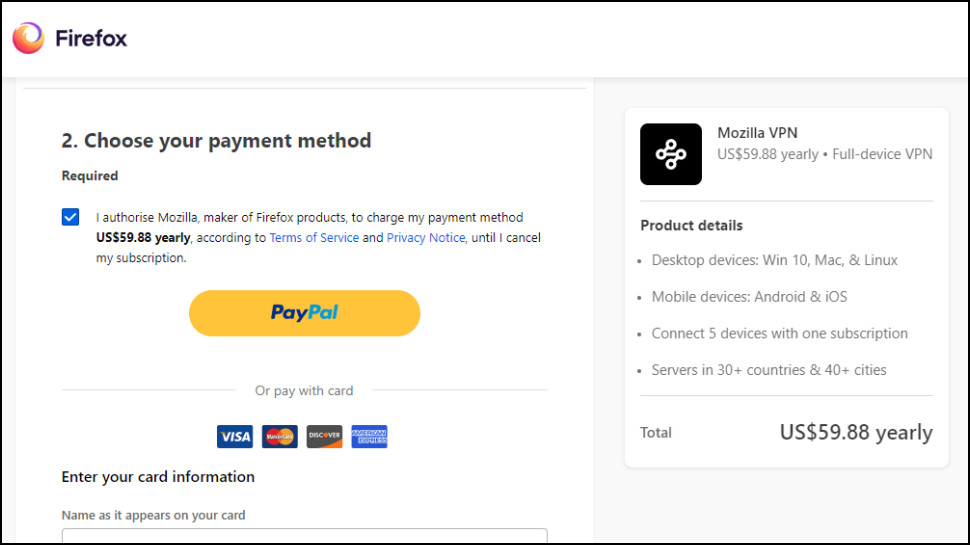
Mozilla VPN pricing
Mozilla VPN is priced at a mid-range $9.99 for its monthly billed account, dropping to $7.99 over six months, or $4.99 on the annual plan.
Although that's not expensive overall, keep in mind that you're paying for access to Mullvad's servers. Go direct to Mullvad and you'll pay a flat rate of €5 a month (around $5.75), whatever the length of your subscription.
Payments are accepted via card and PayPal only.
If you sign up and the service doesn't work for you, no problem, you're protected by a 30-day money-back guarantee. There are no sneaky catches or exclusions, as far as we can tell (and we spent quite some time looking): if you're unhappy, just tell the company within the first 30 days, and you'll get a refund.
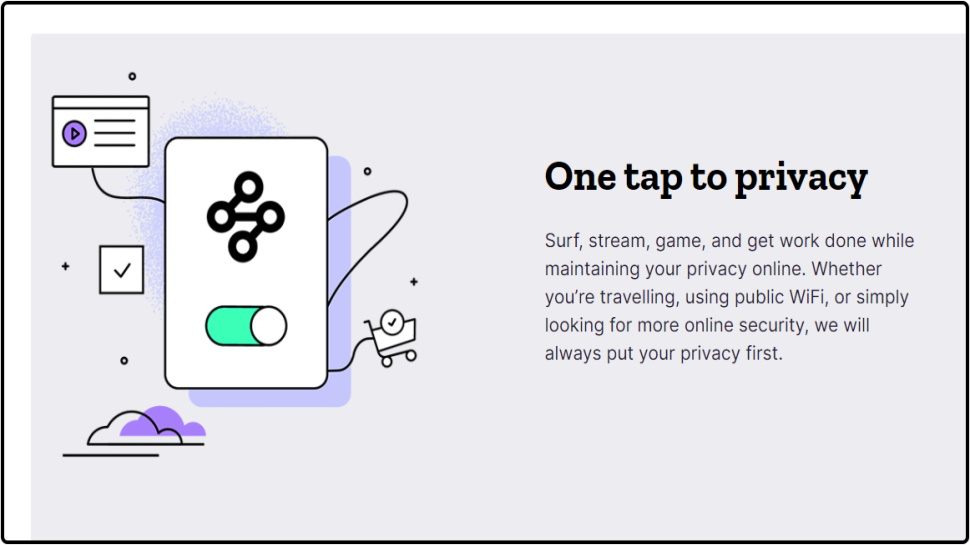
Privacy and logging
Mozilla sells its VPN partly as being from 'a name you can trust', and that's a major plus. Even if you think Mozilla's reputation comes largely from not being Google or Microsoft, it's still way ahead of most VPNs in the trustworthiness stakes, and its partner, Mullvad, is one of the most privacy-focused providers around.
The Mozilla VPN website makes its general approach very clear – 'Your privacy comes first', 'We don’t store your online activity logs on our servers' – and the company provides more information in a brief Privacy Notice.
The firm collects your IP address when you sign up and use the service, along with technical information about its setup (installed app version, operating system, hardware configuration) and 'interaction data': when you log in, when the app requests the server information, and so on. Mozilla says the IP is only held 'temporarily', although it doesn't explain how long 'temporary' might be.
If you're unhappy with this, you can disable some of it. Our Windows app installer asked us whether we wanted to send usage data to Mozilla, making it clear what was going on, and giving us a chance to say 'no, thanks'. (If you don't notice the installer option, you can also turn this off from Settings.)
Mozilla points users to the Mullvad Privacy Policy for more detail, and that explains there's no logging of traffic, DNS requests, IP addresses, session times or bandwidth used.
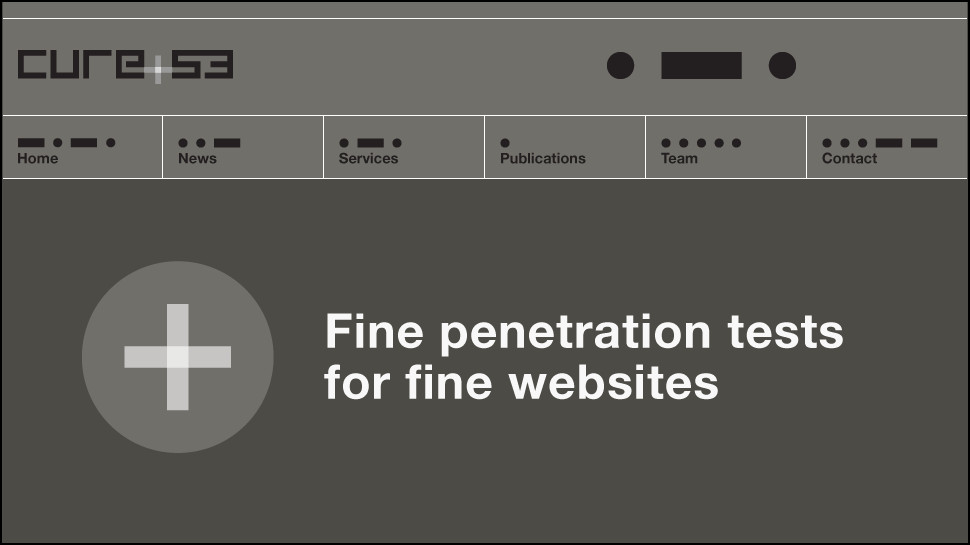
Audit
Mozilla says all the right things about privacy, but users shouldn't be left to take any provider's words on trust. We like to see some independent evidence that a VPN is living up to its promises.
In August 2021, Mozilla provided just that by publishing the results of a second Cure53 audit into its service.
This didn't look at the servers, presumably because they're run by Mullvad, so can't definitively show there's no logging. But Cure53 did get to examine all the apps, including looking at the source code, giving it plenty of opportunity to identify any privacy and security issues.
Cure53 found a number of vulnerabilities, and made some recommendations to improve app design. But the key issues have now been fixed, and Cure53's report concluded that the apps have 'grown significantly in security' since its last review, resulting in a single 'medium' scale vulnerability being uncovered.
Zero vulnerabilities would have been better, of course, but that rarely happens. Cure53 carry out exceptionally detailed reviews which catch even the smallest of issues, and the organization will always uncover some concerns.
Overall, we think the audit is positive news in a number of ways. The scope was significant, covering all Mozilla's apps; the company shared its source code; the audit results were reasonable, and it published the report in full. We give Mozilla a lot of credit for putting itself under that level of scrutiny, something which most VPNs still haven't done.
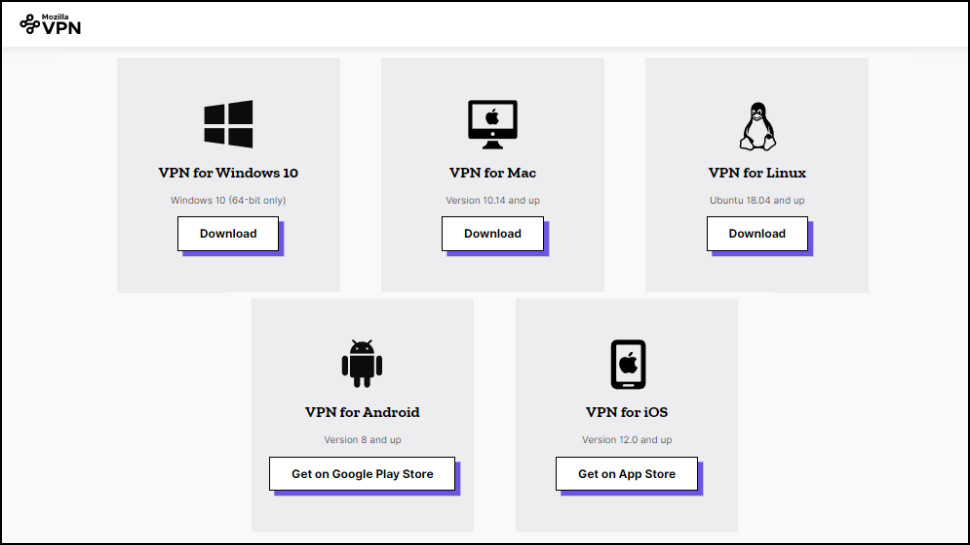
Apps
Getting started with Mozilla VPN requires creating a Firefox account, but that doesn't involve anything more than providing your email address and age. (Yes, age – we're not sure why, either.)
Account set up, we handed over our cash and the website directed us to the Downloads page. We grabbed a copy of the Windows client, and downloaded and installed it within seconds.
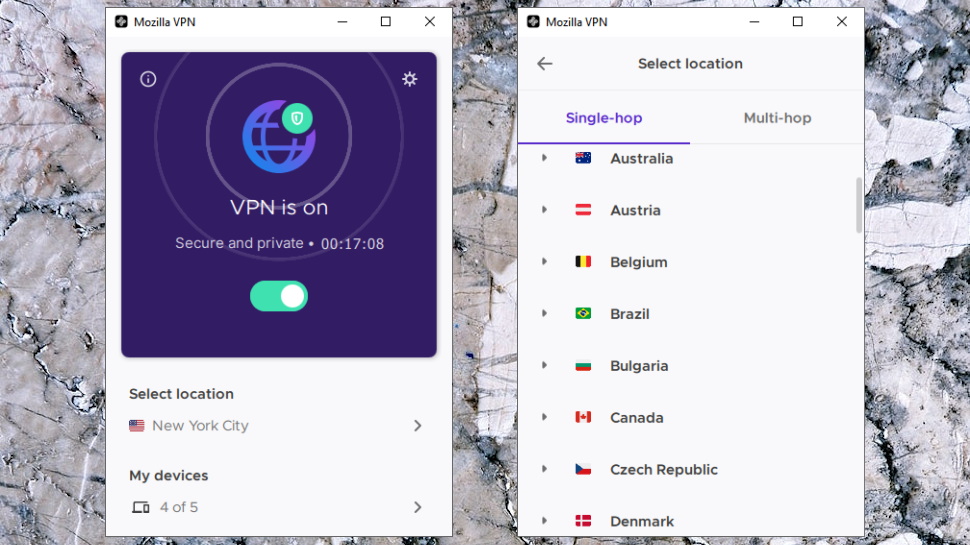
Mozilla VPN's Windows client has a simple, straightforward and very standard interface. A small console displays your default location, and you can click this to select another. A big On/Off switch connects and disconnects you as required, and icons plus a status display make it clear when you're protected, and when you're not.
The client doesn't have an 'Automatic' setting where it chooses the fastest server for you, and there's no Search box, filtering or Favorites system to quickly find your most-used locations. Getting connected can take a little more scrolling and clicking than we'd like.
There's some compensation in Mozilla's use of the ultra-speedy WireGuard protocol, though, which typically got us connected in 2-4 seconds. Even a fast OpenVPN connection usually takes 5-6 seconds to establish, and some make you wait 20 seconds or even more.
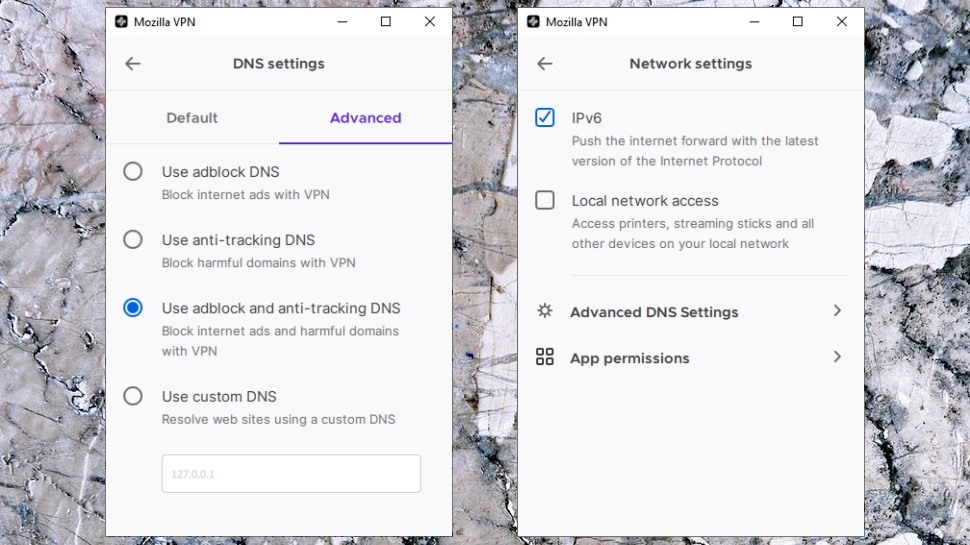
Settings
Mozilla VPN's Windows settings begin with a simple split tunneling system. This enables setting up some apps to use your normal internet connection rather than the VPN, which can be handy to improve performance or fix problems (banking apps which won't run if you seem to be in another country, say).
A DNS Settings screen allows you to choose DNS servers which block ads, 'harmful domains' or both, and you can also enter a custom DNS server of your own.
A Notifications page includes an option to display an alert if you connect to an unsecured Wi-Fi network. That's useful, although more powerful apps can automatically connect to the VPN as required, too.
A handful of more technical features include the ability to enable or disable IPv6, and access devices on your local network (or not). Overall, though, the client keeps its settings to a minimum.
As we mentioned above, there's no option to change protocol: it's WireGuard or nothing. But otherwise, there's a fair amount of configurability here, and Mozilla VPN certainly outperforms many competitors.
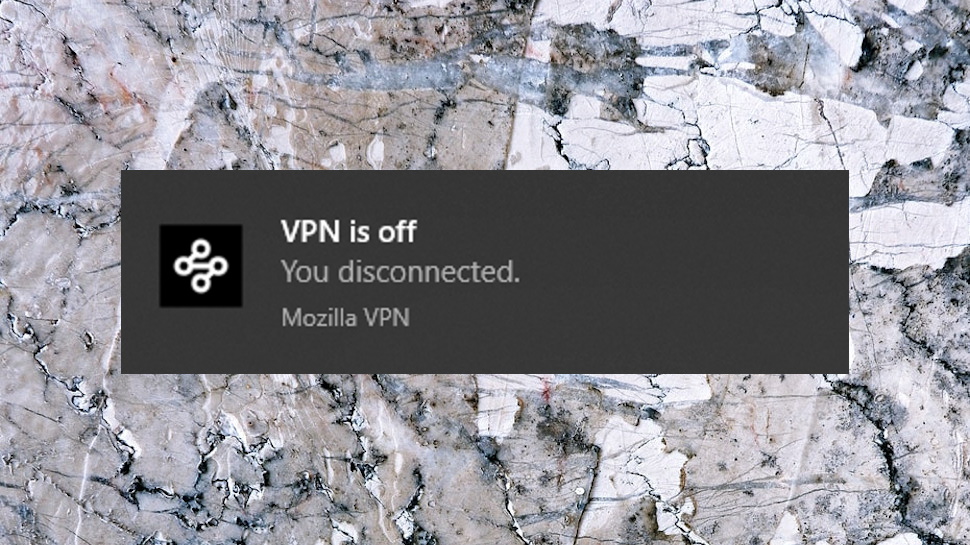
Kill switch
While Mozilla's Windows client has a kill switch, there's no option to turn it on or off, or otherwise tweak how it works. That's good for security, as there's no way you can accidentally disable it. But it could be bad news if the kill switch causes some problems on your device, as there's no way to configure it.
We ran a few tests, and found the kill switch did a reasonable job of blocking our internet if the VPN connection dropped.
Still, there are problems in some extreme situations. If one of Mozilla's Windows services fails, for instance, protection is lost, but the kill switch doesn't kick in. The app warns the user about the disconnection, but there's a chance their identity and some traffic will be exposed.
That's not something you're likely to encounter often, and we're confident the kill switch will protect you in the vast majority of real-world situations. But it's not perfect, and Mozilla still has work to do to close its security holes.
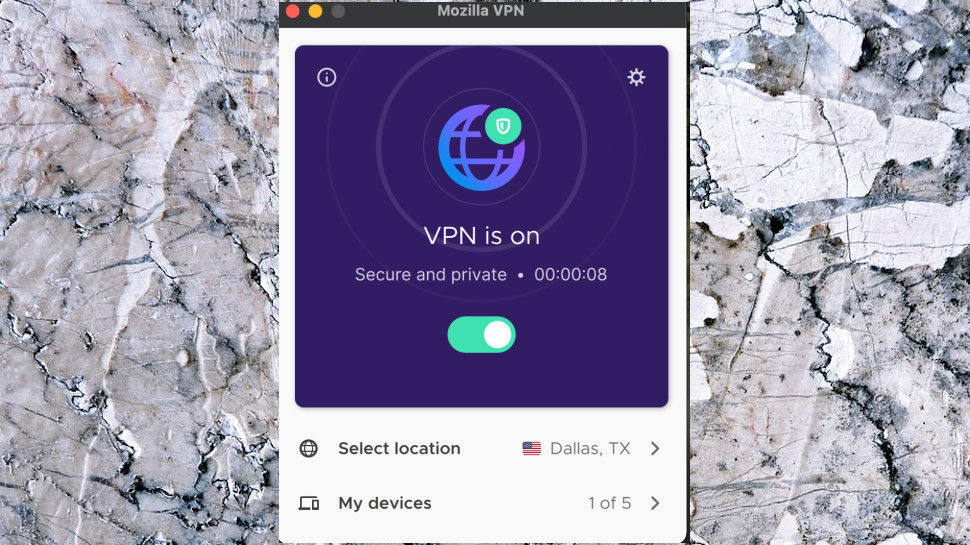
Mac app
Mozilla VPN's Mac app looks and feels almost identical to the Windows version, and that's both good and bad.
On the plus side, it's exceptionally consistent. Learn how the app works on one platform, and you'll have no problem using it on the other.
On the downside, it means the Mac inherits all the same Windows limitations. There's no 'Fastest server' option to automatically choose the best location, no Favorites system, and no choice of protocol. And the full situation is even worse than that, because the Mac app doesn't have Mozilla's 'App permissions' split tunneling system.
There's still some positive news. The app is simple to use, at least for basic tasks – choose your country, and all you have to do is click to connect, click again to Disconnect. And in real-world use, the app worked well for us, connecting quickly and delivering decent performance all-round.
It also has a few interesting touches. You can use ad, tracker or malicious website-blocking DNS, for instance, and get notifications if you connect to insecure Wi-Fi. Other apps go further – the best VPN software can automatically connect when you access untrusted networks – but these are still features worth having.
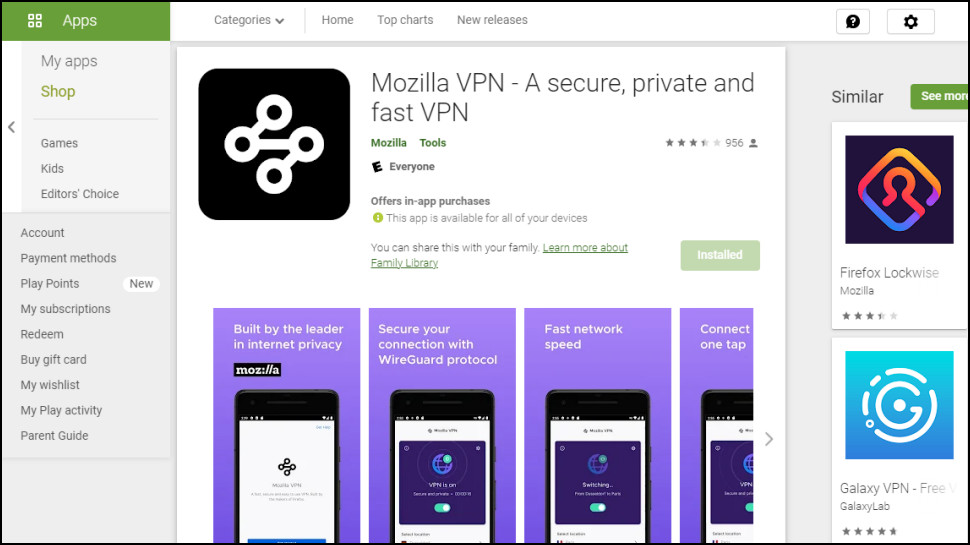
Mobile apps
The Mozilla Android and iOS apps are near clones of the desktop builds, easy to use but with almost no features.
Browsing the menus, we managed to spot some relevant differences. For example, the Android app restores the split tunneling feature which is missing from the Mac, allowing you to choose specific apps that won't have their traffic routed through the VPN.
The iOS app doesn't have split tunneling, but you do still get ad and tracker-blocking DNS and some basic notification settings.
Mozilla's mobile apps aren't exactly exciting, then, but like the rest of the range, they're not terrible, either. They all do a reasonable job of the VPN essentials, and if that's all you need, they might be good enough.
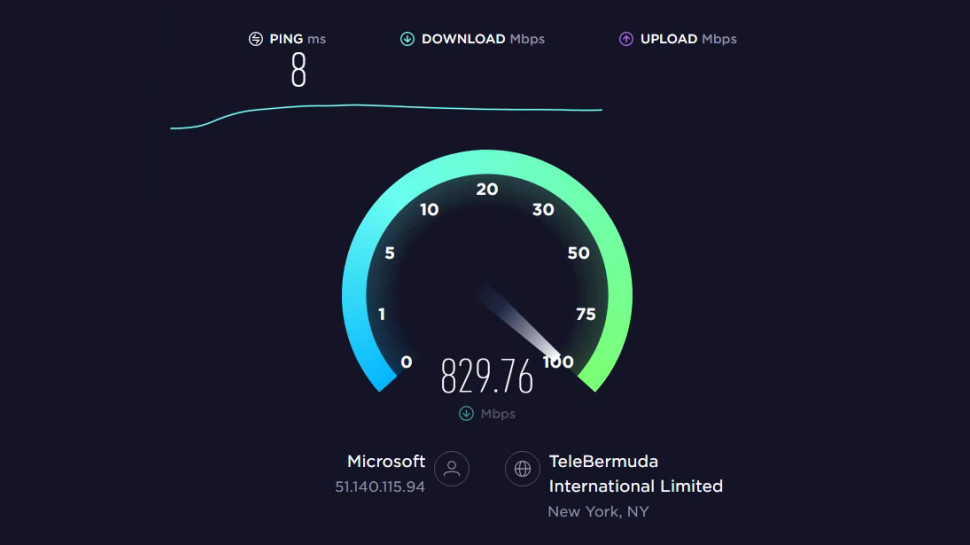
Performance
Mozilla sells its VPN on security and privacy much more than website unblocking, and our tests showed why; the service didn't get us access to BBC iPlayer, US Netflix, Amazon Prime Video or Disney Plus. That's disappointing. CyberGhost, ExpressVPN, Hotspot Shield, NordVPN, ProtonVPN, Surfshark and others all unblocked 100% of our test platforms in recent reviews.
The news was better with our privacy tests, as multiple test sites found Mozilla VPN blocked all DNS and WebRTC leaks.
Download speeds were the real highlight, though, with Mozilla's WireGuard connections reaching up to 520Mbps in the UK, and 850-855Mbps in the US. That puts Mozilla VPN in an impressive fourth place out of our last 20 performance tests, with only IPVanish (890Mbps), Hide.me (900Mbps) and TorGuard (950Mbps) doing better.
Mozilla VPN review: Final verdict
Easy to use and very, very fast, Mozilla VPN might appeal if you're looking for speed and a trusted name. But it can't match top providers like ExpressVPN and NordVPN in features, apps, locations, range of plans, unblocking and more besides, so demanding users might be happier elsewhere.
- We've also highlighted the best VPN
from TechRadar - All the latest technology news https://ift.tt/IXbhgyw

No comments:
Post a Comment